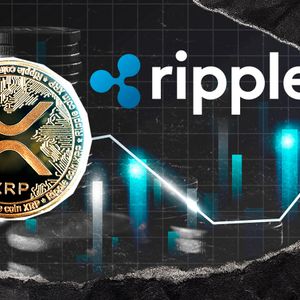BitcoinWorld Bitcoin-Gold Correlation: Crucial Shift as Weakening Trend Emerges The financial world is witnessing a significant shift. For years, many investors considered Bitcoin a digital equivalent to gold, a safe haven against economic uncertainty. However, recent developments suggest this long-held belief is undergoing a dramatic re-evaluation. The Bitcoin-gold correlation , once a strong talking point, is now showing clear signs of weakening, leaving analysts and investors alike pondering the implications. Understanding the Shifting Bitcoin-Gold Correlation Recent reports highlight a surprising divergence between two of the most talked-about assets: Bitcoin and gold. Following President Donald Trump’s remarks last week concerning inflation, the market reacted in unexpected ways. While many anticipated a synchronized movement, the reality proved different, challenging established investment narratives. Cointelegraph, citing multiple analysts, reported a rapid weakening of the Bitcoin-gold correlation . This shift became particularly evident after the President suggested there was ‘almost no inflation’ in the U.S. What followed was a stark contrast in performance. Gold’s Surge: Despite the inflation remarks, gold’s price soared, renewing its all-time high, reinforcing its traditional role as a store of value. Bitcoin’s Correction: In stark contrast, Bitcoin experienced a significant correction, dropping over 13% from its peak and hitting a two-month low. This divergence has caught the attention of market watchers, prompting a closer look at the underlying dynamics of these two assets. Why is the Bitcoin-Gold Correlation Weakening? What’s driving this noticeable split? Vince Yang, co-founder of zkLink, offers a compelling perspective. He has observed a weak, or even negative, Bitcoin-gold correlation throughout the current year. His analysis sheds light on the fundamental differences influencing their market behavior. Yang explains that while gold continues to hold its ground as a primary safe-haven asset, Bitcoin operates under different pressures. Gold’s value often rises during periods of economic instability or inflation fears, serving as a reliable hedge. Its appeal lies in its scarcity, historical significance, and tangible nature. Conversely, Bitcoin, despite its growing acceptance, remains more susceptible to fluctuations driven by liquidity and broader market risk factors. Its price can be heavily influenced by: Liquidity Changes: Large movements of capital in and out of the crypto market. Market Sentiment: Investor confidence, regulatory news, and overall risk appetite. Macroeconomic Factors: While gold reacts to inflation, Bitcoin can be more sensitive to interest rate changes or global economic growth outlooks, sometimes acting more like a tech stock than a traditional commodity. Therefore, the perceived similarity between Bitcoin and gold as ‘digital gold’ is increasingly being re-evaluated in light of these distinct market sensitivities. Navigating the Divergence: Implications for Investors The weakening Bitcoin-gold correlation presents both challenges and opportunities for investors. Understanding this shift is crucial for refining investment strategies and diversifying portfolios effectively. It suggests that treating Bitcoin purely as a gold substitute might be an oversimplification. Investors should consider the following: Diversification Rethink: If Bitcoin and gold no longer move in tandem, they could offer more effective diversification benefits when combined in a portfolio. Risk Assessment: Bitcoin’s higher volatility and sensitivity to market liquidity mean it carries different risk profiles compared to gold. Investors need to assess their risk tolerance accordingly. Independent Analysis: Relying on the historical correlation might be misleading. Each asset now requires independent analysis based on its unique drivers and market conditions. This new dynamic encourages a more nuanced approach to asset allocation, recognizing the evolving roles of both traditional and digital assets in a complex global economy. The Future Landscape: Bitcoin, Gold, and Market Volatility As global markets continue to grapple with inflation concerns, geopolitical events, and technological advancements, the future relationship between Bitcoin and gold will remain a key area of observation. The current weakening trend suggests a maturity in the crypto market, where Bitcoin is carving out its own identity beyond just being ‘digital gold’. It’s becoming clear that while both assets offer value, their paths are increasingly distinct. Gold’s steadfast role as a traditional safe haven is unlikely to diminish soon, whereas Bitcoin’s journey is characterized by innovation, adoption, and a different set of market influences. This evolving landscape demands vigilance and adaptability from investors. The recent reports of a weakening Bitcoin-gold correlation mark a pivotal moment in financial analysis. This divergence, influenced by distinct market dynamics and investor perceptions, underscores the importance of independent evaluation for each asset. As we move forward, understanding these unique drivers will be essential for making informed investment decisions in an ever-changing economic environment. Frequently Asked Questions (FAQs) What is the Bitcoin-gold correlation? The Bitcoin-gold correlation refers to how closely the prices of Bitcoin and gold move in relation to each other. Historically, some investors believed Bitcoin acted similarly to gold as a hedge against inflation or economic uncertainty. Why did analysts expect Bitcoin and gold to correlate? Analysts often expected a correlation because both assets are seen as scarce, decentralized, and outside traditional financial systems. Bitcoin earned the moniker ‘digital gold’ due to these perceived similarities, especially its limited supply, much like gold. What factors are causing the Bitcoin-gold correlation to weaken? The weakening correlation is attributed to several factors. Gold maintains its traditional safe-haven status, reacting to inflation and economic instability. Bitcoin, however, is increasingly influenced by broader market liquidity, risk appetite, and specific cryptocurrency market dynamics, making it more sensitive to different economic signals. How should investors adjust their strategy given this divergence? Investors should re-evaluate their portfolio diversification, recognizing that Bitcoin and gold may now serve different roles. It’s crucial to conduct independent analysis for each asset, understanding their unique drivers and risk profiles, rather than assuming a synchronized movement. Is Bitcoin still considered a ‘digital gold’? While Bitcoin shares some characteristics with gold, the recent weakening correlation suggests its role is evolving beyond a direct ‘digital gold’ substitute. It’s carving out its own identity, influenced by technological adoption and its distinct market factors, making it a unique asset class. If you found this analysis insightful, please consider sharing it with your network on social media. Your shares help us continue providing valuable insights into the dynamic world of cryptocurrency and traditional finance! To learn more about the latest crypto market trends, explore our article on key developments shaping Bitcoin’s institutional adoption. This post Bitcoin-Gold Correlation: Crucial Shift as Weakening Trend Emerges first appeared on BitcoinWorld and is written by Editorial Team
















